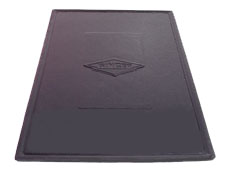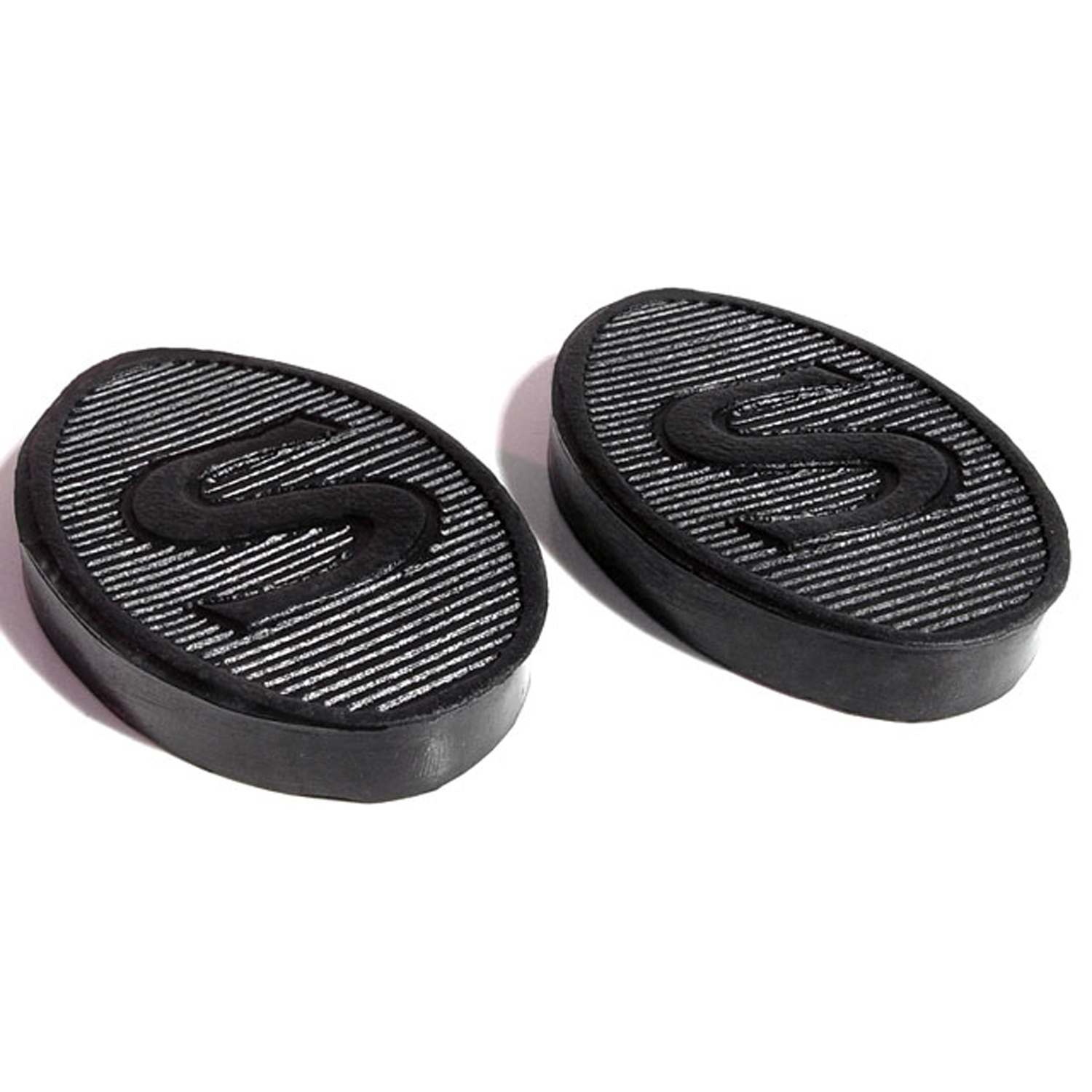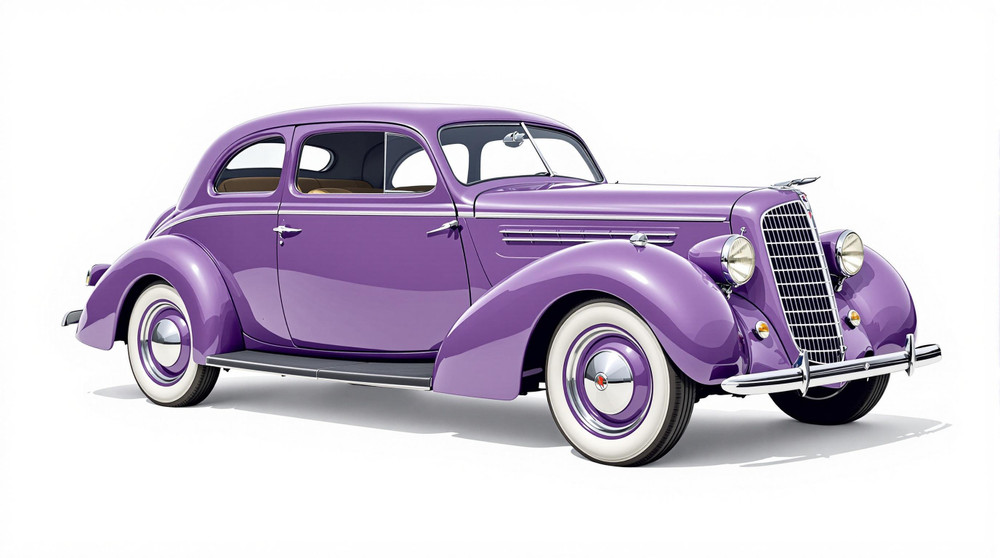Image of 1937 Singer Le Mans, Note: These illustrations use artistic license and may differ from actual historical models.
Performance Metrics
Fundamental Metrics
Emotional Appeal
MMP Rating
| Engine Specifications | |
|---|---|
| Engine: | 4-cylinder in-line |
| Displacement: | 972 cc |
| Horsepower: | Estimated 36-38 HP |
| Torque: | Not available |
| Compression Ratio: | Not available |
| Ignition System: | Coil ignition |
| Cooling System: | Water-cooled |
| Performance Specifications | |
| 0-60 Time: | Not available |
| 1/4 Mile Time: | Not available |
| Top Speed: | 75 mph |
| Transmission and Drive | |
| Drive Type: | Rear-wheel drive |
| Transmission Type: | 4-speed manual |
| Fuel and Efficiency | |
| Fuel System Type: | Carburetor |
| MPG: | Not available |
| Dimensions and Brakes | |
| Brakes: | Drum brakes |
| Wheelbase: | 7 ft 10.5 in |
| Weight: | 1,650 lbs |
Note: Specifications for classic cars are given to the best of our ability, considering the limited and variant data available.
Unveiling the Charm of the 1937 Singer Le Mans
The 1937 Singer Le Mans stands as a testament to the golden age of motoring, a period when cars were not just modes of transportation but symbols of innovation and craftsmanship. Born from the British manufacturer Singer Motors Limited, this vehicle emerged during an era when automotive design was as much about aesthetics as it was about performance. The Singer Le Mans distinguished itself with its blend of style and speed, capturing the hearts of enthusiasts and racers alike. A notable moment in its history is its namesake's connection to the prestigious Le Mans 24-hour race, which inspired its moniker and underscored its sporting pedigree.
Design and Innovation
The exterior of the 1937 Singer Le Mans is a canvas of pre-war automotive artistry. Its sweeping fenders and rakish grille exude elegance, while the wire-spoked wheels add a touch of sportiness befitting its racing-inspired name. Inside, the cabin is a cocoon of simplicity and purpose, with an emphasis on driver engagement over luxury. The materials, though modest by today's standards, were high-quality for the time, with leather seats and a wooden dashboard that spoke of traditional British craftsmanship. Technologically, the Singer Le Mans was ahead of its curve with features like a four-speed manual gearbox and a robust overhead-cam engine—innovations that provided spirited performance for its era. Color options were typically subdued yet classy, with deep blues and greens being popular choices among buyers. Of all body styles available, the two-seater sports tourer was perhaps the most iconic, offering an open-air driving experience that was both exhilarating and intimate.
Historical Significance
The impact of the 1937 Singer Le Mans on automotive design cannot be overstated. It was one of the vehicles that bridged the gap between everyday motoring and motorsport excitement. Its relatively affordable price tag allowed a broader audience to experience a car with sporting aspirations, influencing future designs that would bring performance to the masses. The Singer Le Mans set itself apart with its competitive spirit, often seen dashing through rally stages or racing circuits where it left an indelible mark on motorsport history.
Performance and Handling
Underneath its bonnet lay an eager 972cc four-cylinder engine capable of propelling the Le Mans to top speeds approaching 70 mph—a commendable feat for its time. Acceleration from 0-60 mph was achieved in a leisurely fashion compared to modern standards but provided plenty of excitement for drivers in the 1930s. On winding roads or over uneven surfaces, the car's handling characteristics demanded skill and attention, offering a raw and engaging driving experience. The symphony from its exhaust and mechanical feedback through the steering wheel connected drivers to their machines in a way few modern cars can replicate.
Ownership Experience
Owners of the 1937 Singer Le Mans cherished their vehicles for various reasons—some enjoyed its reliability as a daily driver while others reveled in its show car status or competitive edge in vintage racing events. Maintenance could be straightforward for those familiar with pre-war car mechanics, though sourcing parts today may require some dedication. Nevertheless, owning such a classic offers an immersive journey into automotive history.
Fun Facts
The Singer Le Mans has had its share of limelight beyond racing circuits; it occasionally graced silver screens and has been associated with celebrities and dignitaries of its time. While not known for breaking speed records, it held records of endurance and reliability that were impressive for small sports cars. Despite criticisms regarding its modest power output compared to larger-engined contemporaries, it remains beloved for its balance and charm.
Collector's Information
Today, discerning collectors seek out the 1937 Singer Le Mans for its rarity and historical value. While production numbers were not vast by modern standards, it is estimated that several hundred units were produced. As for value range, pristine examples can fetch significant sums upwards of $30,000 or more depending on provenance and condition. The market has seen appreciation over time as enthusiasts recognize the vehicle's significance within automotive history.
Conclusion
The 1937 Singer Le Mans is more than just a classic car; it's a piece of motoring heritage that encapsulates the spirit of an era where driving was an adventure. Its combination of style, innovation, and performance makes it a cherished collectible that continues to turn heads and stir souls decades after it first hit the road. As we look back on this remarkable machine, we are reminded that some legends only grow finer with time.
1937 Singer Le Mans Catalog of Parts
 1937 Singer LE MANS Accessory Floor Mat - 12"X17"-AC 48Accessory Floor Mat - made of high quality black rubber with molded original emblem. Also designed to be sewn into new carpets. 12"X17", Each
1937 Singer LE MANS Accessory Floor Mat - 12"X17"-AC 48Accessory Floor Mat - made of high quality black rubber with molded original emblem. Also designed to be sewn into new carpets. 12"X17", Each 1937 Singer LE MANS Clutch and Brake Pedal Pads. 1-3/4" wide X 3" long. Pair-CB 98Clutch and Brake Pedal Pads. 1-3/4" wide X 3" long. Pair
1937 Singer LE MANS Clutch and Brake Pedal Pads. 1-3/4" wide X 3" long. Pair-CB 98Clutch and Brake Pedal Pads. 1-3/4" wide X 3" long. PairWhy Choose Metro?
For over 100 years, Metro Moulded Parts has been the pinnacle of quality in classic car restoration parts. Our commitment to precision and authenticity in every component ensures a perfect fit and an OEM-level appearance.
- Expert Craftsmanship & Quality: Each part is a testament to our dedication to reliability and perfection, crafted from original designs and thoroughly tested.
- Advanced Technology: We use cutting-edge techniques to create flawless, long-lasting parts that surpass others in performance.
- SuperSoft Sponge – The Ultimate Door Seal: Not only are our door seals 30% softer than competitors', but they're also guaranteed to never leak. They effectively reduce wind and road noise, enhancing your classic car's comfort and driving experience.
- Proudly American: Our parts are a product of American craftsmanship, made in the USA with a spirit of excellence and heritage.
- Unrivaled Warranty: We back our products with a 30-year industry-leading warranty, a testament to our confidence in their quality.
Join us in preserving the legacy of classic cars with parts that are crafted for perfection, not just made.

